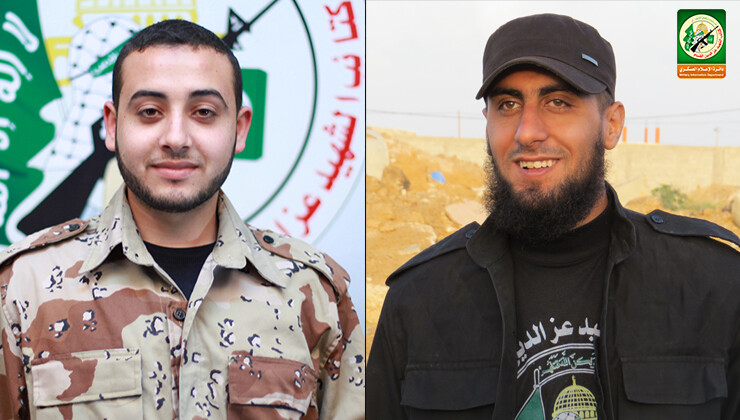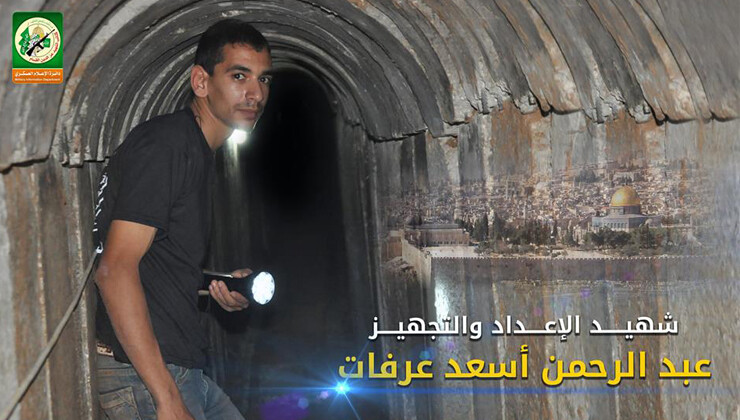Rights and Accountability 9 December 2016
Israeli forces shot and killed a Palestinian youth at a checkpoint in the northern occupied West Bank on Thursday.
“The suspect did not heed their call to stop, continued to move in their direction and at one point whipped out a knife and began running towards them. The forces opened fire at the terrorist,” an Israeli police spokesperson told media. No Israelis were reported injured.
A short video clip taken from a passing car appears to show the youth standing still, with his arms by his side, as a group of soldiers standing several feet away point their guns at him:
The moment of the shooting is not shown on the video.Photos from the scene show the youth lying on the ground as Israeli soldiers stand nearby. In many such incidents, Israeli forces have not attempted to administer first aid to wounded alleged assailants.
“It is a basic duty under international law to provide medical aid to the wounded, and failure to do so – especially intentional failure – violates the prohibition on torture and other cruel, inhuman and degrading punishment,” Amnesty International has stated. “As such, failure to provide medical aid should be investigated as a criminal offense.”Palestinian media have identified the slain man as Muhammad Jihad Hussein Harb, 19, from the West Bank town of Qalqilya.
Deadly junction

An image Muhammad Jihad Hussein Harb circulated on social media after his slaying.
The incident took place at a military checkpoint at the Zaatara junction near Nablus, the site of several deadly encounters between Palestinians and Israeli forces over the past year, including the killing of a woman in October.
More than 100 Palestinians have been slain by Israeli forces so far this year, 74 of them during actual and alleged attacks. Palestinians have killed eight Israelis, including a girl, during the same period.
This year’s deaths follow a new phase of confrontation that peaked in the last quarter of 2015, with fatal incidents occurring at checkpoints and settlements throughout the West Bank.
Israel is currently holding the bodies of more than two dozen Palestinians killed during actual and alleged attacks. Palestinians in the West Bank city of Bethlehem held a march on Thursday calling on Israel to transfer their remains.
Tunnel deaths
Abu Obeida, the pseudonymous spokesperson of the Qassam Brigades, the armed wing of Hamas, announced on Thursday that 22 of its fighters have died this year undertaking preparations to “confront the enemy.”
The statement appears to be a reference to the group’s efforts to build up defenses for any future conflict with Israel, which has carried out three major assaults on the Gaza Strip since 2008.
Three of the Qassam fighters who lost their lives – Abd al-Rahman Arafat, 24, from Khan Younis, and Ismail Shamali, 27, and Rami al-Areer, 24, both from Shujaiya near Gaza City – were killed in tunnel accidents this week.
Arafat joined the Qassam Brigades in 2011, according to the group.
Shamali worked as a school teacher during the day and in the tunnels at night, Palestinian media reported. Like Shamali, al-Areer graduated from the Islamic University of Gaza. He had married shortly before he was killed, and his wife is expecting their first child.

An image published by the Qassam Brigades shows Rami al-Areer at left and Ismail Shamali at right.
Despite the dangers in building them, the Qassam Brigades have claimed that the tunnels are a key resistance tactic and have been used in 13 operations in which 70 Israeli soldiers were killed and two captured.
Israel is investing millions to detect tunnels, securing some $120 million in US support.
Destroying the tunnels was the stated goal of Israel’s ground invasion during its devastating attack on Gaza in the summer of 2014.
While Israel claims the tunnels are used for “terrorism,” the independent UN-commissioned inquiry into the 2014 war found that the tunnels were used only to attack legitimate military targets.

An image of Abd al-Rahman Arafat published by the Qassam Brigades.
Another man affiliated with the Qassam Brigades, 30-year-old Ahmad Abu al-Husna, was killed and a second man was seriously injured during an explosion inside a house in the northern Gaza town of Jabaliya on Monday.
“The cause of the explosion remained undetermined,” the Ma’an News agency reported the following day.
Egypt floods tunnels
On Monday, the Hamas authorities in Gaza strongly condemned the Egyptian government after it flooded a tunnel underneath the border, killing four Palestinians. They were identified as Ali Badawi, 43, Muhammad Badawi, 21, Imad Badawi, 24, and Sami al-Tawil, 30.
The men were killed while “looking for a livelihood and sustenance for their children … under the suffocating siege suffered by the residents of the Gaza Strip,” Hamas stated, calling on Egypt to lift the closure it has imposed on the territory.
Rafah crossing, the sole point of exit and entry for the vast majority of Gaza’s two million residents, has been largely shut since former army general Abdulfattah al-Sisi took power in a military coup against Egyptian President Muhammad Morsi in summer 2013.
Rafah crossing was open for nine days last month, with Palestinian sources stating that there are still 17,500 people on the waiting list to exit Gaza.
Since al-Sisi seized power, the Egyptian military has demolished the homes of thousands of Egyptians along the border and destroyed dozens of tunnels used as supply lines after Israel imposed a full blockade on Gaza in 2007.
Israel unprepared for attack
On Tuesday, the Israeli military held an exercise “simulating a coordinated attack by Hamas from the Gaza Strip,” Israeli media reported.
The exercise was intended to test the “army’s response to a scenario that includes a major terror attack via an attack tunnel, a marine attack (such as Hamas attempted at Zikim Beach during Operation Protective Edge in 2014) and attacks from the air (for example by drones or terrorists using paragliders),” the Tel Aviv newspaper Haaretz stated.
Meanwhile, the Israeli state comptroller published a report finding that the army lacks “adequate response capabilities” in the event of large-scale rocket and missile attacks. The comptroller said that for the past two years, government leaders have postponed planning a response to mobilize the population in the event of an attack.
Two million Israeli citizens have no access to bomb shelters, according to the report, which says the number of unprotected civilians is much higher since existing shelters are not in usable condition or do not meet minimal criteria.
The comptroller’s report states that Bedouin communities in the southern Naqab region lack shelter protection altogether.
The state requires citizens to build their own protective shelters, costing about $26,000.
As Haaretz reported, the problem is compounded in Bedouin communities “by the fact that the populace has no way of receiving building permits, so even if responsibility for protective spaces is on their shoulders, there is no way to carry out construction, comptroller Shapira notes.”
West Bank crackdown
Israel’s military intelligence chief has predicted “a very challenging reality” in 2017 due to power struggles between Palestinian factions in anticipation of the end of the rule of Palestinian Authority leader Mahmoud Abbas.
Israel has relied on Abbas’ forces to crack down on Palestinian resistance in the West Bank.
This week Israel allowed five armored jeeps to be delivered to the PA security forces after rejecting requests for the vehicles for years.
“The Americans supported the request and the Jordanians agreed to supply the vehicles,” Haaretz reported. The paper added that COGAT, the Israeli military body that oversees the occupation of the West Bank and Gaza Strip, recommended that Prime Minister Benjamin Netanyahu and defense minister Avigdor Lieberman approve the transfer.
This week the Israeli military announced that it had arrested a “terror” cell based in a West Bank village near Ramallah that it said was responsible for four shooting attacks using homemade weapons which were carried out in October and November near the Israeli settlement of Ofra.
Israel also arrested several Palestinians in the southern West Bank, accusing them of involvement in a “Hamas terror cell” and planning to kidnap Israelis.
Last month Israel said it had arrested another cell in Jerusalem, claiming the group was responsible for “numerous bombing attacks targeting Israeli security forces” and were “preparing for future attacks.”





